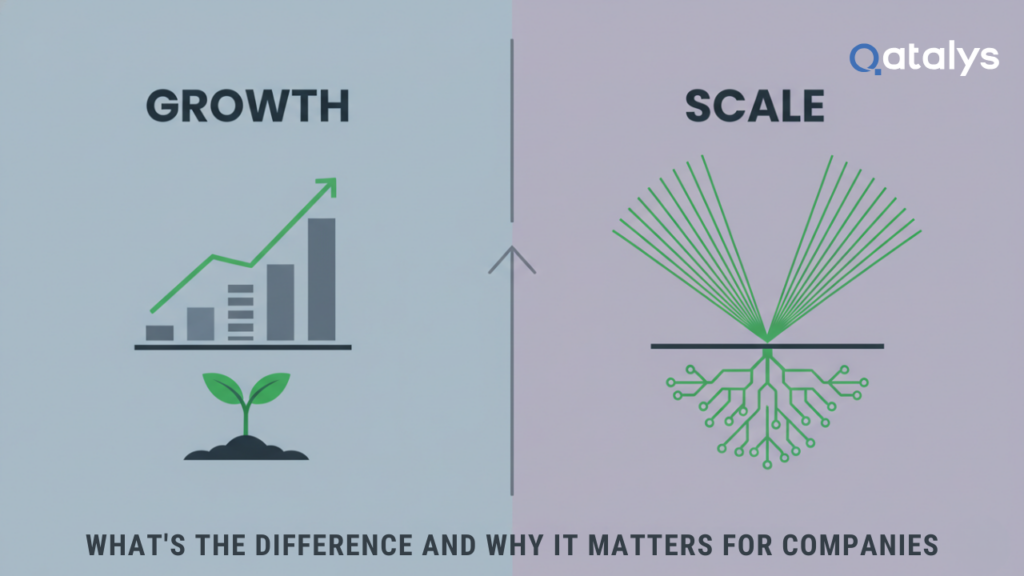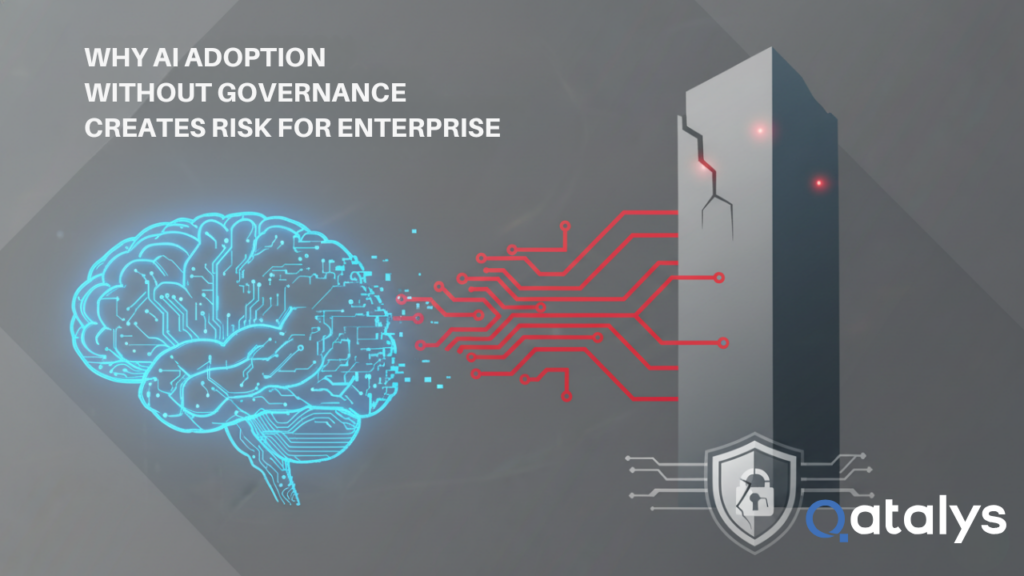If you’re an early-stage founder trying to bring a startup idea to life, you’ve probably asked yourself: “Should I look for a co-founder, raise funding, or apply to an accelerator?”
There’s another option many don’t consider early enough – the venture studio.
Often described as a “startup builder,” a venture studio helps founders not just launch, but validate, build, and grow their startup alongside a team of experts. It’s not just about funding or mentorship – it’s about hands-on execution.
But how exactly do venture studios work? What makes them different from VCs or incubators? And is this model right for someone who’s just getting started?
In this blog, we’ll break it all down – from how venture studios operate to what new founders should expect if they choose to partner with one. Whether you’re at the idea stage or already raised some funds but need help getting things built, this is your guide to understanding the venture studio model – and how it might be the smartest move you make.
Venture Studio 101 – A Simple Definition
A venture studio (also known as a startup studio or startup factory) is an organization that builds startups from the ground up – either by developing its own ideas or partnering with external founders to turn early-stage concepts into scalable businesses.
Unlike venture capital firms that mainly provide funding or accelerators that offer mentorship and short-term programs, venture studios roll up their sleeves. They bring in teams, validate ideas, build products, test the market, and even help run the company alongside the founders.
Think of it this way:
- VCs write the check.
- Accelerators give you a boost.
- Venture studios help you build the plane as you fly it.
Most studios provide:
- Initial capital to build your MVP
- Product teams (designers, engineers, PMs)
- Strategic support for GTM, branding, growth
- Shared infrastructure (legal, ops, hiring, etc.)
It’s a more hands-on, execution-driven model – perfect for founders who have the vision but need serious backup to build fast and smart.
What Makes Venture Studios Unique
Venture studios stand out because they do far more than just fund ideas – they co-build them.
Instead of handing you a cheque and checking in quarterly, studios surround you with an execution engine: product teams, growth strategists, designers, engineers, and domain experts who work side by side with you from Day 1.
Here’s what sets them apart:
1. Execution-First Support
Venture studios aren’t advisory bodies – they do the work. Whether it’s building your MVP, setting up user acquisition funnels, or stress-testing your go-to-market plan, they plug in actual teams to execute.
2. Capital with Skin in the Game
Unlike traditional investors, studios typically provide more than just capital – they invest time, infrastructure, and human resources. The goal is to de-risk early-stage startups by being active contributors, not just shareholders.
3. Idea Validation Before Scaling
Before pouring resources into building a product, studios help you validate your idea – often with market testing, user research, or lightweight prototyping. This increases your odds of finding product-market fit before running out of runway.
4. Access to Pre-Vetted Talent
Hiring a product manager, developer, or designer from scratch can take months. Studios already have these teams – meaning you get to build fast without building a team first.
5. Repeatable, Proven Playbooks
Studios operate like systems. They’ve seen what works and what doesn’t – often across multiple startups. You benefit from their experience and refined processes, which means fewer costly mistakes and more structured scaling.
Quick Comparison: Studio vs VC vs Accelerator
| Feature | Venture Studio | VC | Accelerator |
| Capital | Yes | Yes | Yes |
| Hands-on Product Help | Yes | No | No / Partial |
| Tech & Growth Teams | Yes | No | No |
| Program Timeline | Ongoing | NA | Fixed (3–6 months) |
| Co-creation/Execution | Yes | No | No |
| Equity Ask | Moderate (10–35%) | High (20%+) | Low (5–7%) |
By combining capital, talent, and strategic input, venture studios are ideal for founders who don’t just need advice – they need a launchpad.
The Venture Studio Process: Step by Step
Every venture studio has its own playbook, but most follow a structured, phased approach to building startups from the ground up. For new founders, understanding this process is crucial – it gives a clear picture of what working with a studio actually looks like day-to-day.
Here’s a typical venture studio workflow, broken down into key stages:
1. Idea Sourcing or Founder Collaboration
Some studios generate ideas internally and then find the right founder to lead them. Others work with external founders who already have an idea or early traction.
At Qatalys, we lean toward the latter – partnering with founders who have clear domain insight or a strong early-stage idea that needs execution muscle.
2. Validation & Research
Before writing a single line of code, the studio team focuses on validating the opportunity:
- Is there a real market need?
- Who is the target user?
- Can the idea be tested quickly and cheaply?
This stage may involve user interviews, competitor analysis, landing page tests, or lightweight MVP prototypes. The goal is to avoid building in the dark.
3. Product Development & MVP Build
Once validated, the studio deploys its internal product and engineering teams to:
- Define the core feature set
- Design intuitive UX/UI
- Build the MVP using agile methods
- Set up backend infrastructure and QA processes
As a founder, you’re deeply involved in shaping the product – but you’re not left to manage tech execution alone.
4. Go-to-Market Strategy
While the product is being built, the growth and marketing teams step in to:
- Identify early adopters and user segments
- Develop messaging and positioning
- Set up acquisition channels (organic and paid)
- Prepare for launch (website, content, email, PR)
This is one of the biggest differences between a studio and an incubator: GTM is part of the core build – not an afterthought.
5. Launch & Early Traction
With MVP and GTM in place, the studio supports a controlled launch:
- Monitor key metrics: signups, usage, retention
- Run experiments to improve conversion
- Collect feedback and iterate quickly
- Plug in growth levers like paid campaigns or influencer partnerships if relevant
The goal here is not just to launch, but to launch smart – with enough support to hit early traction milestones.
6. Scale-Up or Spin-Out
Once traction is visible and a business case is proven:
- The startup can raise additional funding (with studio help)
- The team is formalized around the founder
- Equity structure is locked in, and the studio gradually steps back
- The startup becomes a standalone company – or remains within the studio umbrella, depending on the model
At Qatalys, this is where we help transition teams from co-building to independent scaling – with ongoing support if needed.
This step-by-step approach is what makes venture studios so appealing to execution-strapped founders. Instead of piecing together tech, design, strategy, and capital on your own, you move through a focused, collaborative build journey – with fewer unknowns and more forward momentum.
Why New Founders Should Consider a Venture Studio
For first-time founders, building a startup can feel like an endless checklist: validate the idea, build a product, hire a team, raise funds, go to market, scale. Each step has its own risks – and going it alone or piecing together support from different sources can stretch timelines and increase burn.
This is where a venture studio offers real leverage.
Here’s why the model is especially powerful for new or early-stage founders:
1. You Have the Vision, But Not the Team
Many founders come from a domain background – they’ve identified a gap in the market but don’t have access to engineers, designers, or product teams to bring it to life.
Qatalys Venture Studio fills that gap with ready-to-deploy talent and infrastructure, so you don’t spend months recruiting before you can even start building.
2. You’re Short on Time or Bandwidth
Building a startup is a full-time job – but not every founder can afford to stall progress while juggling other responsibilities. A venture studio acts as a parallel execution arm, helping you move faster without sacrificing quality or strategic direction.
3. You’ve Raised Capital, But Need Execution Partners
Not all funded startups are ready to scale. Some get early checks but struggle to convert capital into real product-market fit.
Qatalys Venture Studio works with founders who’ve raised or have access to funding but need help with execution clarity – from refining the roadmap to setting up scalable systems.
4. You Need Validation Before Going All-In
Quitting your job, investing savings, or raising a round – these are big moves. Before committing fully, many founders want to test the waters. Venture studios allow for that – offering a structured way to validate demand, user behavior, and monetization without rushing into full-scale development.
5. You Want a Partner, Not Just a Cheque
Unlike VCs or angel investors who provide capital and check in occasionally, a venture studio like Qatalys Venture Studio is in the trenches with you. From wireframes to customer interviews to launch-day dashboards, you have an actual team co-owning the outcome.
This model isn’t about cutting corners. It’s about increasing your chances of building something meaningful, fast – and doing it with a team that’s done it before.
Common Myths About Venture Studios
Despite their growing popularity, venture studios are still misunderstood – especially by first-time founders. Let’s clear the air by addressing some of the most common myths and misconceptions about the model.
Myth 1: Venture Studios Take Too Much Equity
Many founders assume that working with a studio means giving up a massive share of their company. In reality, equity structures vary widely – and are often more aligned with contribution and risk than traditional investor terms.
At Qatalys Venture Studio, equity is structured based on the level of involvement – funding, team resources, time commitment, and ownership goals are all openly discussed from the start. The aim is always to create founder-first partnerships that are fair, transparent, and scalable.
Myth 2: I’ll Lose Control of My Vision
This is one of the biggest concerns among creative or product-focused founders. But venture studios aren’t there to take over – they’re there to build with you, not for you.
You stay in the driver’s seat. Studios like Qatalys Venture Studio serve as your copilots – bringing operational strength, market experience, and product execution, while you lead strategy, vision, and long-term direction.
Myth 3: Venture Studios Are Only for Idea-Stage Startups
While many studios work with startups from the idea stage, that’s far from the only entry point.
If you already have:
- A validated concept but no team
- An MVP that needs refinement
- Some funding but no product
- Early traction but no GTM plan
…then you’re exactly the kind of founder a studio can help. Qatalys Venture Studio often partners with startups that are post-ideation but pre-scale – when momentum matters most.
Myth 4: It’s Just Another Incubator or Accelerator
Unlike accelerators, which run fixed-time programs, or incubators that offer mentorship and space, venture studios are embedded co-creators. They provide not just advice but execution capacity, making them fundamentally different.
If you’re looking for more than a few weekly sessions and demo day prep, the venture studio model offers a deeper, longer-term engagement that’s tied to real business outcomes.
Myths like these often keep founders from exploring a model that might be the right fit. The truth is: if you want to move fast, de-risk early decisions, and build with a strategic partner – not just investors – a venture studio deserves serious consideration.
Is a Venture Studio Right for You? (Checklist)
Still wondering whether a venture studio is the right fit for your startup journey?
Here’s a simple checklist to help you evaluate. If you answer yes to most of the points below, partnering with a studio like Qatalys Venture Studio might be the best next move.
You might be a fit for a venture studio if:
- You have a solid startup idea or domain insight but lack the in-house team to execute.
- You’re short on time, bandwidth, or resources to build everything from scratch.
- You’re looking for a co-building partner – not just funding or mentorship.
- You want to validate your idea before committing full-time or raising a big round.
- You’ve raised some capital but aren’t sure how to turn it into momentum.
- You’d benefit from ready-made product, tech, design, and growth capabilities.
- You’re comfortable collaborating and sharing equity for execution support.
- You prefer learning through building – not just workshops, slides, or demo days.
If several of these apply, a venture studio can provide the execution leverage and strategic structure you need to turn your startup from an idea into something real.
And if you’re still on the fence, that’s okay – founders at different stages need different kinds of support. But it’s worth exploring models that not only fund your idea but help bring it to life alongside you.
How Qatalys Venture Studio Works with Founders
At Qatalys Venture Studio, we don’t just fund startups – we build them with you.
Our model is designed for early-stage startups that already have some traction – a validated concept, an MVP, some users, or initial funding. We step in where execution matters most: turning potential into real-world progress through product, tech, and growth support.
Here’s how we typically engage:
1. Funding & Runway Support
We offer co-investment or structured capital support to help you move faster and smarter. This includes:
- Runway planning and budget allocation
- Pitch deck and investor material refinement
- Warm introductions to relevant VCs and co-investors
If you’ve raised a round or have funds but need direction and delivery, we step in as partners.
2. Product Engineering & Tech Build
Our in-house engineering, design, and QA teams collaborate with you to:
- Build or refine MVPs and core product features
- Architect scalable backends and infrastructure
- Execute fast sprints with rigorous quality checks
- Bring product vision to life with UX-first design
You focus on direction – we handle execution.
3. Validation & Refinement
Even with an MVP or live product, many startups still face uncertainty around:
- Feature prioritization
- Market messaging
- Ideal user personas
We help you validate assumptions, run lean experiments, and improve product-market alignment before scaling up.
4. Go-to-Market & Growth Execution
No startup succeeds without a plan to acquire and retain users. Our team supports you across:
- Launch planning and positioning
- Paid and organic acquisition strategy
- Funnel setup, metrics tracking, and CRO
- Early-stage retention and lifecycle marketing
We help translate a working product into early growth traction.
Qatalys Venture Studio is not an idea incubator. We partner with founders who already have momentum – and need expert execution support to turn that momentum into scale.
Whether you’re under-resourced, wearing too many hats, or stuck between MVP and go-to-market, we act as an embedded team to help you get unstuck and move forward – with confidence, speed, and focus.
Conclusion
Starting a company is hard – but starting alone makes it even harder.
The venture studio model offers a different path: one where you’re not just handed capital or advice, but given a team, a system, and a structure to actually build. For founders who already have traction – be it an MVP, early users, or funding – and need help bridging the gap between vision and execution, venture studios can be the partner that makes growth possible.
At Qatalys Venture Studio, we work with founders who are serious about scaling. We plug in where it matters most – tech, validation, and growth – so you don’t waste time, burn capital, or stall before you’ve even started moving.
If you’re at a point where you need to build faster, validate smarter, or grow with less guesswork – we’d love to talk.








